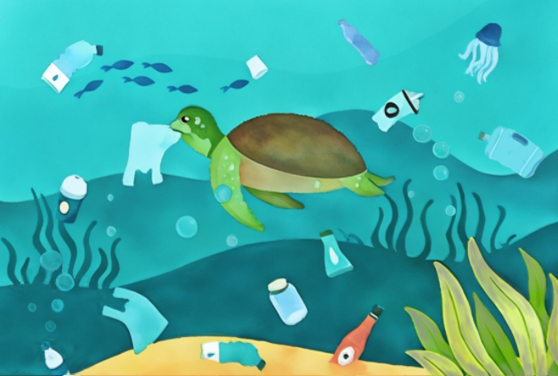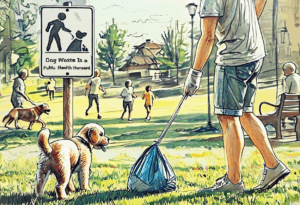
In recent years, single-use plastics have emerged as a pressing environmental concern. Designed for convenience, these items end up in the landfill, posing a threat to public health and wildlife. The long-term effects of pollution have sparked calls for regulation and debates on whether single-use plastics should cease. This poses the question of whether the government should intervene in the production of single-use plastics. Let’s discover the benefits and drawbacks.
For context, single-use plastics account for 89% of the plastic in the ocean, including straws, plastic bags, and disposable utensils. This surge in plastic waste has led to unprecedented losses in marine wildlife. Declines in marine life present a significant challenge: a food shortage for many coastal indigenous communities who rely on seafood as a vital resource. As microplastics accumulate in the ocean, humans are increasingly exposed to pollution and its harmful effects on health. Daily, communities are impacted as plastic refineries pollute low-income areas, contributing to the rise in deaths from lung cancer and other respiratory diseases. There’s a proven impact that regulating the production of plastics encourages sustainable practices. For example, cities like Philadelphia, Pennsylvania, Portland, Oregon, and Santa Barbara, California, have cut single-use plastic bag consumption by about 6 billion bags per year. Thus, government intervention is a viable solution to reduce single-use plastics.
However, single-use plastics are also heavily utilized within the healthcare industry. Approximately 16 million single-use plastic injections are utilized each year to avoid infections and the spread of diseases. During the 2020 pandemic, single-use masks and protection equipment were largely utilized to slow the spread of the virus. In the case of healthcare, it is difficult to find alternatives as it is essential to maintain the welfare of patients. In addition, the majority of feminine products in stores are made up of single-use plastics. Government intervention could increase the prices of these products, leading to inaccessibility for women, who may already face difficulty in purchasing their necessities. Overall, plastic is also a cheaper resource than paper, aluminum, and other resources.
So, should the government intervene? Or not? As the concerns for our future arise, it is important to consider this information. Long-term effects of plastic consumption yield negative externalities as they heavily pollute the planet and drastically harm wildlife and human welfare. While government intervention is crucial, individuals can also play a vital role in creating change. There are many alternative solutions to single-use plastics, and it is up to us to make the right choice for future generations. Together, we can make meaningful progress for the future.
Sources:
- &64;CondorFerries. (n.d.). 100+ ocean pollution statistics & facts 2024. Condor Ferries. https://www.condorferries.co.uk/marine-ocean-pollution-statistics-facts
- CEI Staff 07/13/2018, Staff, C., Berlau, J., 09/18/2024, Wirtz, B., 09/17/2024, Watkins, D., & 09/16/2024. (n.d.). Five reasons banning plastics may harm the environment and consumers. Competitive Enterprise Institute. https://cei.org/blog/five-reasons-banning-plastics-may-harm-the-environment-and-consumers/
- How Price Impacts Individuals Buying Menstrual Products – NM Political Report, nmpoliticalreport.com/news/how-price-impacts-individuals-buying-menstrual-products/
- Jahnke, Ashlee. “A discussion of single-use plastics in medical settings.” Reinforced Plastics, vol. 64, no. 4, Aug. 2020, pp. 190–192, https://doi.org/10.1016/j.repl.2019.12.002. https://www.magonlinelibrary.com/doi/full/10.1016/j.repl.2019.12.002
- Krumperman, Katie. “Period Poverty in the United States.” Ballard Brief, Ballard Brief, 11 Sept. 2024, ballardbrief.byu.edu/issue-briefs/period-poverty-in-the-united-states#:~:text=In%20the%2040%20years%20on,having%20their%20own%20sales%20tax
- The decline of marine biodiversity – ocean & climate platform. Ocean & Climate Platform – A healthy ocean, a protected climate. (2020, January 29). https://ocean-climate.org/en/awareness/the-decline-of-marine-biodiversity/
- Oakes, K. (2022, June 9). What would happen if we stopped using plastic?. BBC News. https://www.bbc.com/future/article/20220526-what-would-happen-if-we-stopped-using-plastic
- Ota, Y., & Cisneros-Montemayor, A. (2017, July 7). For indigenous communities, fish mean much more than food. Oceans. https://deeply.thenewhumanitarian.org/oceans/articles/2017/07/04/for-indigenous-communities-fish-mean-much-more-than-food
- Webber, J. (2020, December 15). Single-use items make up 89% of plastic waste in the Ocean. LIVEKINDLY. https://www.livekindly.com/single-use-items-make-up-89-of-plastic-waste-in-the-ocean/
The views and opinions expressed are those of the authors and do not necessarily reflect nor represent the Earth Chronicles and its editorial board.




